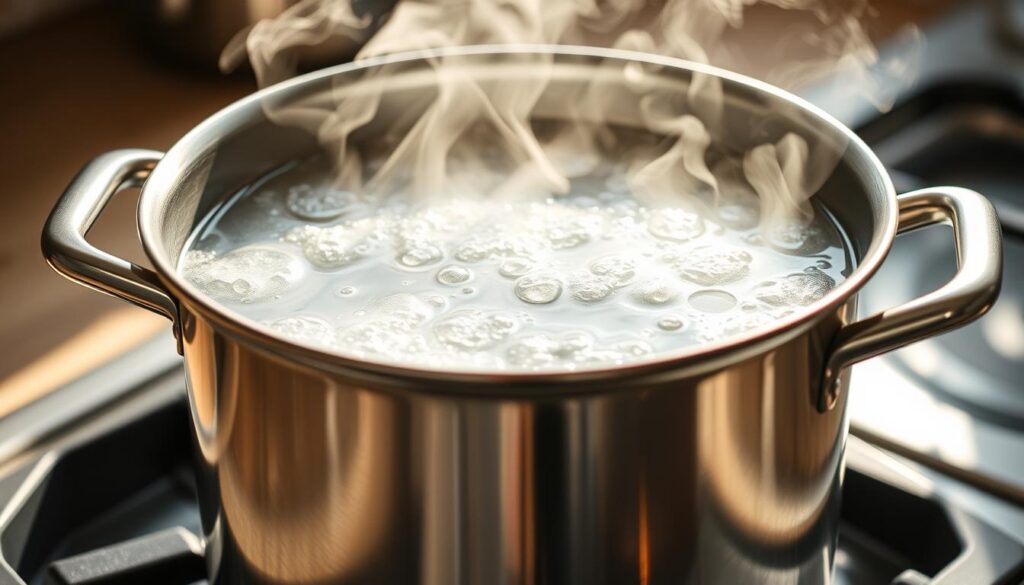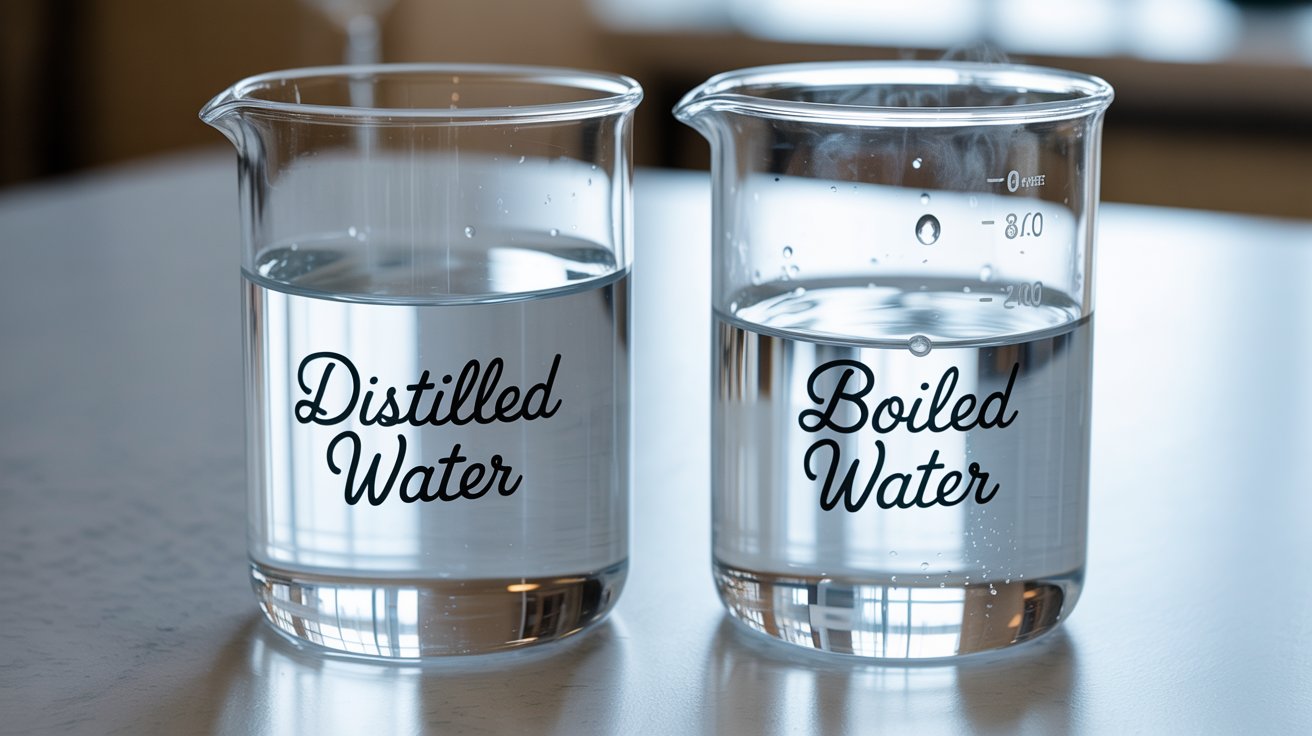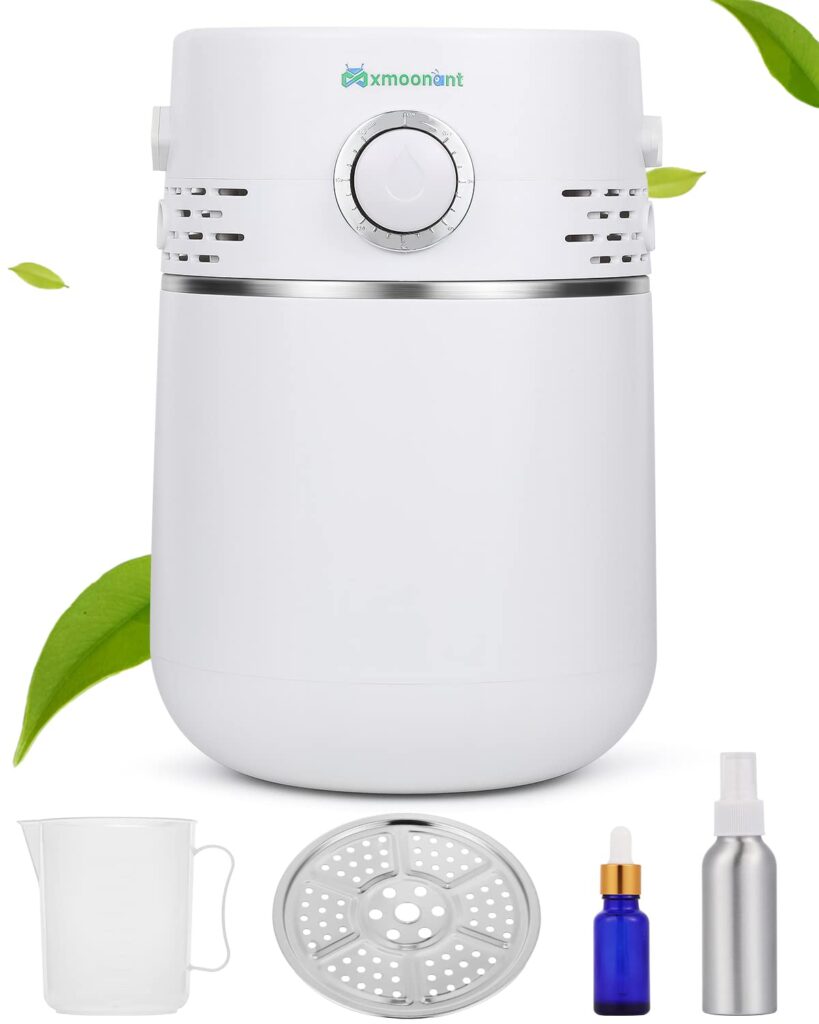When it comes to choosing between distilled water and boiled water, it’s important to understand the key differences between the two. Distilled water is water that has been boiled and then condensed back into a liquid state, leaving behind impurities and contaminants. This process removes minerals, chemicals, and other impurities, resulting in a very pure form of water. On the other hand, boiled water is simply water that has been heated to its boiling point, which kills off any harmful bacteria or pathogens that may be present. While both methods result in cleaner water, they each have their own unique benefits and drawbacks.
Distilled water is often considered the purest form of water available, as it is free from any impurities or contaminants. This makes it an ideal choice for use in medical equipment, laboratory experiments, and even in certain industrial processes. However, some argue that the lack of minerals in distilled water can make it less beneficial for everyday consumption. Boiled water, on the other hand, retains some of the minerals and nutrients that are present in the original water source, making it a more balanced option for drinking. It’s important to consider these differences when deciding which type of water is best for your specific needs.
Health Benefits of Distilled Water
Distilled water offers a number of health benefits due to its purity. Because it is free from impurities and contaminants, it is less likely to cause digestive issues or other health problems. Additionally, distilled water is often recommended for individuals with certain medical conditions, such as kidney disease or high blood pressure, as it does not contain any minerals that could exacerbate these conditions. Furthermore, the lack of minerals in distilled water can make it a better choice for individuals who are looking to reduce their mineral intake for various health reasons.
Another health benefit of distilled water is its ability to hydrate the body more effectively. Because it is free from impurities, the body is able to absorb and utilize the water more efficiently, leading to better overall hydration. This can be especially beneficial for athletes or individuals who engage in strenuous physical activity. Additionally, some studies have suggested that drinking distilled water may help to detoxify the body by flushing out toxins and impurities. Overall, the purity of distilled water can offer a range of health benefits for those who choose to consume it regularly.
Health Benefits of Boiled Water
While boiled water may not be as pure as distilled water, it still offers a number of health benefits. The process of boiling water kills off harmful bacteria and pathogens, making it safe for consumption. This can be especially important in areas where the water supply may be contaminated with bacteria or other microorganisms. Additionally, boiled water retains some of the minerals and nutrients that are present in the original water source, providing a more balanced option for drinking.
Boiled water can also offer digestive benefits, as it can help to kill off any harmful bacteria or parasites that may be present in the water. This can reduce the risk of gastrointestinal issues and other health problems that can arise from consuming contaminated water. Furthermore, some studies have suggested that drinking boiled water may help to improve digestion and promote overall gut health. Overall, while boiled water may not be as pure as distilled water, it still offers a range of health benefits that make it a viable option for everyday consumption.

Environmental Impact
When considering the environmental impact of distilled water versus boiled water, it’s important to take into account the energy and resources required for each method. The process of distilling water requires a significant amount of energy to heat the water to its boiling point and then condense it back into a liquid state. This can result in a higher carbon footprint compared to simply boiling water, which requires less energy and resources. Additionally, the production of distilled water often involves the use of plastic containers for packaging, which can contribute to plastic waste and pollution.
On the other hand, boiling water may have a lower environmental impact due to its simpler production process and reduced energy requirements. However, it’s important to note that both methods still require energy and resources, so neither option is completely free from environmental impact. Ultimately, when considering the environmental impact of distilled water versus boiled water, it’s important to weigh the energy and resources required for each method and consider ways to minimize their environmental footprint.
Cost Comparison
In terms of cost, boiled water is generally more affordable than distilled water. The process of boiling water requires minimal equipment and resources, making it a cost-effective option for everyday consumption. Additionally, because boiled water retains some of the minerals and nutrients present in the original water source, there is no need for additional mineral supplements or additives. This can further reduce the overall cost of consuming boiled water on a regular basis.
On the other hand, distilled water can be more expensive due to the energy and resources required for its production. The process of distilling water involves heating the water to its boiling point and then condensing it back into a liquid state, which requires significant energy and equipment. Additionally, the packaging and distribution of distilled water can also contribute to its higher cost compared to boiled water. Overall, when considering the cost comparison between distilled water and boiled water, it’s important to take into account the production process, packaging, and distribution costs associated with each method.
Taste and Purity
When it comes to taste and purity, distilled water is often considered the purest form of water available. Because it is free from impurities and contaminants, it has a very clean and neutral taste that many people find appealing. Additionally, the lack of minerals in distilled water can make it taste smoother and more refreshing compared to other types of water. This can make it an ideal choice for individuals who are looking for a very pure and clean-tasting form of hydration.
On the other hand, boiled water may have a slightly different taste due to the presence of minerals and nutrients that are retained during the boiling process. Some people may find this taste to be more natural and balanced compared to distilled water. Additionally, because boiled water retains some of the minerals present in the original water source, it may have a slightly different taste depending on the specific mineral content. Overall, when considering taste and purity, it’s important to take into account personal preferences and individual sensitivities to different types of water.
Which is the Right Choice for You?
In conclusion, both distilled water and boiled water offer unique benefits and drawbacks that make them suitable for different purposes. Distilled water is often considered the purest form of water available, making it an ideal choice for medical equipment, laboratory experiments, and certain industrial processes. It also offers a range of health benefits due to its purity and ability to hydrate the body more effectively. However, it may be more expensive and have a higher environmental impact compared to boiled water.
On the other hand, boiled water offers a more balanced option for everyday consumption due to its retention of minerals and nutrients from the original water source. It also provides a number of health benefits by killing off harmful bacteria and pathogens that may be present in the water. Additionally, boiled water is generally more affordable and has a lower environmental impact compared to distilled water.
Ultimately, when deciding between distilled water and boiled water, it’s important to consider your specific needs and preferences. If you prioritize purity and health benefits, distilled water may be the right choice for you. However, if you are looking for a more balanced option that is cost-effective and has a lower environmental impact, boiled water may be the better choice. It’s important to weigh these factors carefully in order to make an informed decision about which type of water is best for you.



